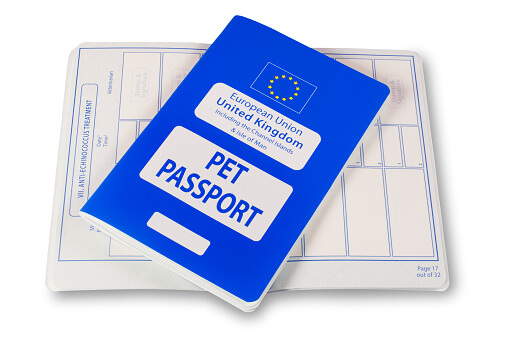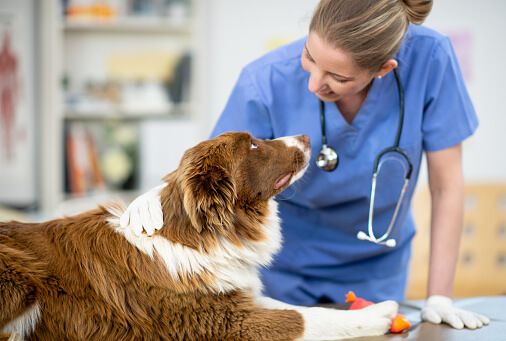If you are looking to add a cute little member to your family, here is everything you need to know about keeping pets in the Netherlands.
If you plan on keeping pets in the Netherlands, there are several Dutch regulations you will need to adhere to such as registration, identification chips, and tax. This helpful guide covers all the essential information about Keeping Pets in the Netherlands , including veterinary and emergency services and who to call if your pet goes missing.
What You Need to Know About Keeping Pets in the Netherlands?
There are a few steps to follow for Keeping Pets in the Netherlands. Let’s look what we need to do for keeping a dog as your pet.
Registering your dog
For Keeping Pets in the Netherlands all dogs must be registered at the local town hall. The declaration with your municipality has to be done within the first 14 days of getting your dog. Proof of registration comes in the form of a small metal tag on the dog’s collar.
Annual dog tax
Depending on where you live in the Netherlands, you may have to pay an annual dog tax (hondenbelasting) to your local tax office (Belastingdienst). Although many municipalities scrapped this tax, around 200 still impose it. The amount can vary from area to area. The three municipalities with the highest dog tax, for instance, are Groningen at €124.80, The Hague at €120.12, and Hendrik Ido Ambacht at €119.64. The good news is that cats and other pets do not require registration or tax. Check your municipality website for more information about Keeping Pets in the Netherlands.
Identification microchips
As well as registering your dog at the local town hall, you are also required to have an electronic microchip implanted. The chip, which is no larger than a grain of rice, is placed underneath the skin by a veterinarian and contains information such as the pet’s name, address, and emergency contact number. The authorities use this information to identify pets that are lost and reunite them with their owners. Needless to say, it is important to make sure that these details are up to date.
Pet passports
European Union pet owners must have pet passports when traveling with their animals or bringing them into the Netherlands. The passports are to include the pet’s microchip or tattoo number for identification, as well as other data such as records of all vaccinations and clinical examinations.

Pet insurance
Another important thing to consider for Keeping Pets in the Netherlands. There are various insurance policies that can fit your budget and needs. Depending on the level of cover you opt for, these can often cover many of the costs associated with vet bills and treatment in the case of injury or illness. Insurance companies offering pet coverage in the Netherlands include:
If you know your pet is prone to a certain condition, make sure to check that the policy covers this, too. Of course, you will want to check if the insurance provider is established and reputable. This is where reading reviews and asking around within local expat groups and circles can really help.
Walking your dog
You should check with your municipality to find out where your dog is free to walk without a leash and where it can relieve itself. Be aware, though, that you may receive a hefty fine if you allow your dog to do their business in an undesignated area.
During walks, you must clean up your dog’s mess and dispose of it in one of the marked bins. Therefore, make sure that you carry some poop bags with you at all times.

Compulsory training for certain breeds
In 2017, the Dutch government released an official list of 20 different dog breeds that it deems dangerous or high-risk. A new law came into action, making it mandatory for the owners of these breeds to attend a course in keeping dogs with a tendency towards aggressive behavior. Pitbull terriers/crossbreeds, Rottweilers, and Caucasian Shepherds are among the breeds.
In addition, the government intends to set up a central register to record dog bite incidents and a hotline for people to report dangerous dogs or owners who refuse to deal with them properly. If you are considering getting a dog, you can find advice on choosing one on the National Pet Information Centre (LICG) or Minder Hondenbeten websites (in Dutch).
Veterinary services in the Netherlands
The Dutch are great pet lovers and there is a good network of vets and animal hospitals across the Netherlands. You can search online for vets (dierenarts) and practices (dierenartspraktijk) in your area.
Animal ambulance services in Netherlands
If you cannot find an emergency veterinarian (Dieren Spoedkliniek) or a 24-hour service, you can either call the Animal Ambulance (Dierenambulance) in your area or your local veterinarian. Both will list an emergency number for help outside of office hours.
- Amsterdam: 020 626 2121
- The Hague: 070 328 2828 / 070 366 0909
- Hilversum: 035 683 0300
- Leiden: 071 517 4141
- Maastricht/Zuid-West Limburg: 090 0443 3224
- Rotterdam: 010 415 5666 / 010 476 8750
- Utrecht: 030 273 1600 06 / 065 477 2700
- Wassenaar: 070 511 7772

Losing and finding a pet
If your pet has gone astray, you should call your local pound or one of the main numbers below. You can also contact the Amivedi Nederland(animal tracing service) on 090 0264 8334. If the animal has an electronic identification chip, you can also report the loss to the national chip database.
- Amsterdam: Dierenkwijtlijn, 020 470 5000 (choose 1 in menu to report missing pet)
- Den Bosch: Bosch en Duin, Dierenkliniek, 030 228 3810
- Eindhoven: Dierenkliniek Dikkertedap, 040 243 2455
- Groningen: Diergeneeskundig Centrum Paterswoldseweg en Hoogkerk, 050 525 2697
- Haarlem: Dierenkliniek Meerwijk, 023 533 3363
- The Hague: Haags Dierencentrum, 070 366 1806 (choose 1 in menu)
- Maastricht: Dierenkliniek Oranjeplein, 043 363 1818
- Rotterdam: Dierenopvangcentrum, 010 437 4211
- Utrecht: Amivedi Dieren Opsporingsdienst (animal tracing service), 030 251 3372
Checkout How to get your 4 Important Utilities Sorted in the Netherlands: Gas, Electricity, Water and more